How to avoid Getting Sick In Vietnam?
Traveling the world is an exhilarating adventure, but it can also expose you to health risks if you don't take the right precautions. Hygiene conditions, endemic diseases, and cultural differences can affect your health as you explore new regions. However, by being vigilant and taking a few precautionary measures, you can considerably reduce the risk of falling ill and enjoy your trip to the fullest. In this article, we'll show you in detail how to avoid getting sick in Vietnam with some simple and effective tips to help make the most of your stay, whether you're here on business or vacation.
Beware of Local Food
Vietnam's local cuisine is vibrant and diverse, but unfamiliar ingredients and varying sanitation standards can bring a few health risks. Knowing what to avoid eating in Vietnam is your first step to avoid getting sick. Here’s how to discover local flavors safely and keep stomach troubles at bay.
Avoid Raw or Undercooked Foods: Steer clear of raw seafood, rare meats, and unwashed produce. These can carry bacteria like Salmonella, E. coli, and Campylobacter. To avoid digestive issues like gastroenteritis or foodborne infections, stick to fully cooked dishes, especially in places where hygiene standards may vary.
Choose Peelable Fruits and Vegetables: Fruits with peels, like bananas, oranges, and mangoes, are usually safer than those eaten with the skin, such as tomatoes or lettuce. This helps you avoid contamination that can linger on the surface.
Eat Where the Locals Go: Busy restaurants with a steady stream of local customers are often a good sign. High turnover can indicate fresher food and better hygiene standards. Places with few patrons, on the other hand, might suggest a lack of freshness.
Be Cautious with Buffets: Buffets may offer variety but can be risky if food sits out for too long. Bacteria flourish at room temperature, so opt for hot dishes that are made to order when possible.
Choose Freshly Prepared Street Food: When eating street food, pick stalls where food is cooked fresh right in front of you. High cooking temperatures help kill pathogens, minimizing the risk of foodborne illness.

Be Careful of the Water
In some countries, access to clean drinking water is limited, exposing travelers to the risk of bacterial, viral, and parasitic infections. Many diseases, such as diarrhea and parasitic infections, can be transmitted through contaminated water. Clean water is crucial for staying healthy, especially in a tropical climate like Vietnam’s. Here’s how to avoid waterborne illnesses and stay hydrated safely:
Don’t Drink Tap Water: Tap water in Vietnam may contain bacteria, viruses, and parasites that can cause stomach issues like traveler's diarrhea. Even if it looks clear, it’s best to avoid drinking it. This includes using it for brushing your teeth—stick with bottled or filtered water instead to lower your risk.
Opt for Bottled Water: Drinking bottled water is the safest choice. Make sure the seal is intact before buying, as some vendors may reuse bottles. Check local brands, as they’re often affordable and widely available.
Use a Portable Filter or Purifying Tablets: If you’re heading to rural or remote areas, bring a portable water filter or purifying tablet. These options allow you to safely use water for hygiene or drinking, keeping you hydrated and worry-free when bottled water is scarce.
Is Ice Safe in Vietnam: Ice can be a hidden risk, as it’s often made from tap water. Unless you’re confident it’s purified, skip the ice to reduce the chance of ingesting contaminants.
Rinse Fruits and Vegetables in Safe Water: When eating raw produce, make sure it’s been rinsed in purified water or disinfect it yourself. This can help you avoid potential bacteria or parasites lingering on the surface.
Watch Out for Animals and Insects
Animals, whether domestic or wild, as well as insects, represent another major source of health risks when traveling. Zoonotic diseases (those transmitted from animals to humans) and infections transmitted by insect bites can easily spread, particularly in certain regions of the world. Following these steps can help prevent insect- and animal-borne illnesses, making it easier to avoid getting sick in Vietnam.
Avoid Bites and Stings
Use Insect Repellent: Mosquitoes in Vietnam can spread diseases such as dengue fever, malaria, and Zika. Apply a repellent containing DEET to your arms, legs, and neck to help prevent bites. Some repellents also work against ticks and other insects.
Wear Protective Clothing: Mosquitoes are most active at dawn and dusk, so if you’re outdoors during these times, wear long-sleeved shirts and pants to cover your skin.
Sleep Under a Mosquito Net at a Homestay: In high-risk areas, use a mosquito net, ideally one treated with insecticide, to avoid bites while you sleep.
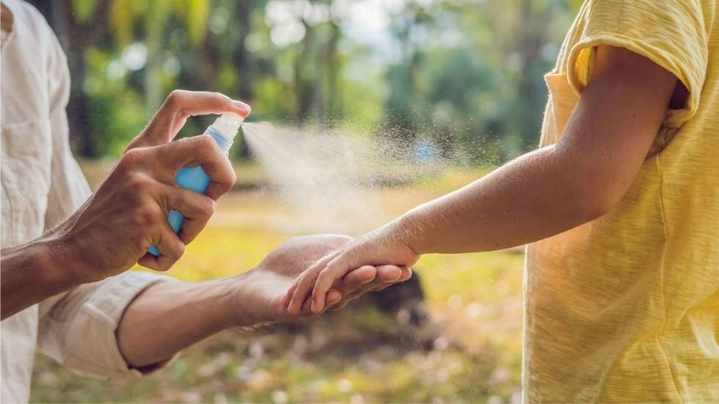
Protecting Yourself from Animals
Avoid Contact with Stray Animals: Dogs, cats, and other animals may carry diseases such as rabies and leptospirosis. Avoid touching stray animals, no matter how friendly they may seem.
Consider a Rabies Vaccination: If you’re planning outdoor or rural activities, consult a healthcare provider about getting a rabies vaccine before your trip. It’s especially helpful in remote areas where quick access to medical care might be limited.
Wash your Hands Often
When traveling, your hands will come into contact with potentially contaminated surfaces, such as door handles, elevator buttons, public transport seats, and kitchen utensils. Good hand hygiene is key to avoiding getting sick while traveling in Vietnam. Here’s how to keep your hands germ-free:
Wash Hands with Soap and Water: Wash your hands thoroughly, especially before eating and after using the bathroom. Scrub for at least 20 seconds, making sure to cover all areas, including under fingernails.
Use Hand Sanitizer: When soap isn’t available, use a hand sanitizer with at least 60% alcohol. This is a reliable alternative for eliminating most bacteria and viruses.
Avoid Touching your Face: Try not to touch your face—especially your eyes, nose, and mouth—with unwashed hands. This simple habit helps prevent germs from entering your system.
Don't Forget Your First Aid Kit
A well-equipped first-aid kit is essential to avoid getting sick in Vietnam. It will enable you to treat minor injuries quickly and deal with minor issues without having to seek out a local pharmacy or doctor. Here's what you should pack in your first-aid kit:
Basic Medications: Include pain relievers like paracetamol or ibuprofen, antihistamines, and remedies for common issues like diarrhea and constipation.
Antiseptics and Disinfectants: Pack 70% alcohol or antiseptic wipes, along with sterile bandages and gauze.
Specific Medications: Bring enough of any prescription medications you need, plus a copy of your prescriptions.
Malaria Medication: If you're going to a malaria-prone area, consult your doctor about anti-malarial options, like doxycycline or other preventive treatments.

Adapt to the Climate
Clothing plays a crucial role in preventing illness when traveling. Whether you're exposed to extreme temperatures, humidity, or the sun, your choice of clothing can have a significant impact on your health.
Sun Protection: If you're going to sunny areas, protect yourself from sunburn and heatstroke by wearing a hat, sunglasses, and light but covering clothing. Apply a broad-spectrum sunscreen (SPF 30 minimum) regularly to prevent skin burns and the long-term effects of the sun on your skin.
Clothing for Wet and Rainy Climates: In wet and rainy regions, take along waterproof clothing, such as a windbreaker and waterproof shoes. Avoid staying in wet clothes to prevent skin issues like fungal infections.
Preparation is Key
Finally, the best way to avoid getting sick while traveling in Vietnam is to prepare yourself in advance. Before you leave, consult a travel specialist to make sure your vaccinations are up to date (hepatitis A and B, typhoid, diphtheria, tetanus, polio, rabies, etc.). Some destinations even require you to be vaccinated against certain diseases, such as yellow fever.
Vaccinations and Health Advice: Speak with your healthcare provider to ensure you’re up to date on essential vaccines like hepatitis A and B, typhoid, and rabies. Consider health insurance for emergency coverage and repatriation, which can be vital if you fall ill abroad.
Check for Health Risks Specific to Your Destination:Depending on your destination, there may be specific health risks you need to take into account before you leave. For example, if you're going to an area where malaria is endemic, it may be necessary to take preventive medication, or if you're going to an area where dengue fever is present, extra precautions regarding mosquitoes will be crucial.
Create a Medical Emergency Plan: Before you leave, it's also advisable to prepare an emergency plan in case of illness or accident. This plan should include information such as local emergency numbers, the address of the nearest hospital, and the medical coverage you have taken out. In addition, always keep a copy of your medical documents with you, including prescriptions (in English if possible), as well as a health record for any emergencies.
Conclusion
Traveling to Vietnam is an adventure full of vibrant culture, stunning landscapes, and unforgettable experiences. Staying healthy while you’re there doesn’t have to be complicated; with a bit of preparation, mindful habits, and common-sense precautions, you can focus on enjoying your trip. By practicing good hygiene, staying hydrated, protecting yourself from insects and sun, and being cautious about food and water, you’re setting yourself up for a safe, worry-free journey. If you do encounter any health issues, remember that Vietnam has excellent healthcare options in major cities to help get you back on track.
>>> Top 8 Best Things To Bring For Your Trip To Vietnam
>>> What Bag To Take To Vietnam: Backpack or Suitcase?
Send us your comments about : How to avoid Getting Sick In Vietnam?
Required fields *
You might also be interested
Travel ideas
Need some inspiration? Discover some of the best tours in Vietnam, which are highly appreciated by our clients. An excellent starting point to help you choose the right trip to Vietnam, Laos, Cambodia, Burma or Thailand, whether you are traveling alone, as a couple, as a family or with friends.
And because this trip is yours, feel free to customize it as you wish!
Vietnam Cambodia Itinerary 14 Days
Hanoi – Hoa Binh – Mai Chau – Ninh Binh – Halong bay – Hue - Danang – Hoian – Saigon – Ben Tre - Can Tho – Saigon - Siem Reap Angkor - Tonlé Sap - Siem Reap – Ta Prohm - Departure
Vietnam and Laos 14 days
Saigon - My Tho - Da Nang- Hoian – Hue - Hanoi - Halong Bay - Vientiane Luang Prabang - Pak Ou – Khuang Si - Luang Prabang – Departure
Honeymoon Tour Packages In Vietnam 12 Days
Saigon Arrival - City Tour – Mekong Delta – Danang – Hoian - by flight - Da Nang – Hanoi - by flight – Halong - overnight on junk – Departure
Authentic Hoang Su Phi Trekking Tours
Hoang Su Phi trekking tours take you to stunning terraces, meet few tourists, connect with locals and enjoy authentic culture.
The Best of Ha Giang Trekking Tours
Discover Ha Giang on trekking tours where you live local life, enjoy breathtaking views and escape the crowded routes.
Vietnam Itinerary 2 Weeks
Hanoi - Ninh Binh - Lao Cai - Sapa - Muong Hum market - Ha Long Bay - Hue - Danang - Hoi An - Saigon - Mekong Delta - Cai Rang floating market - Departure
Are you interested in this tour?





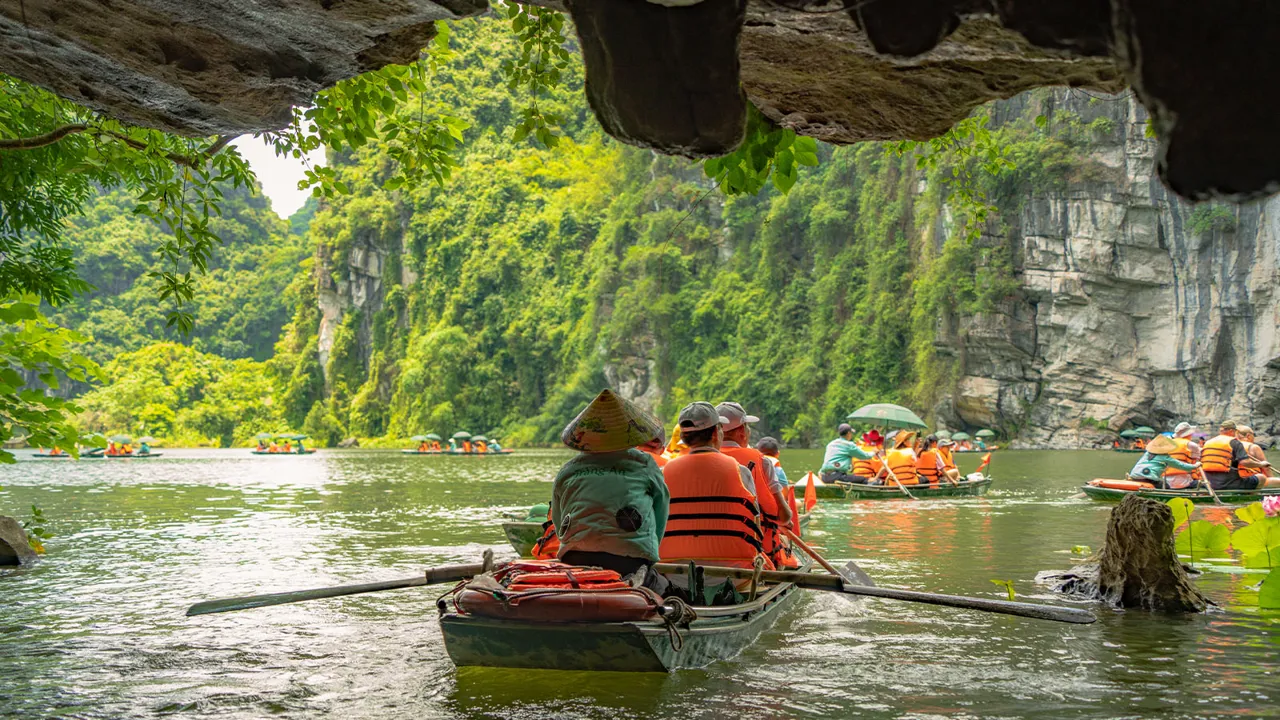
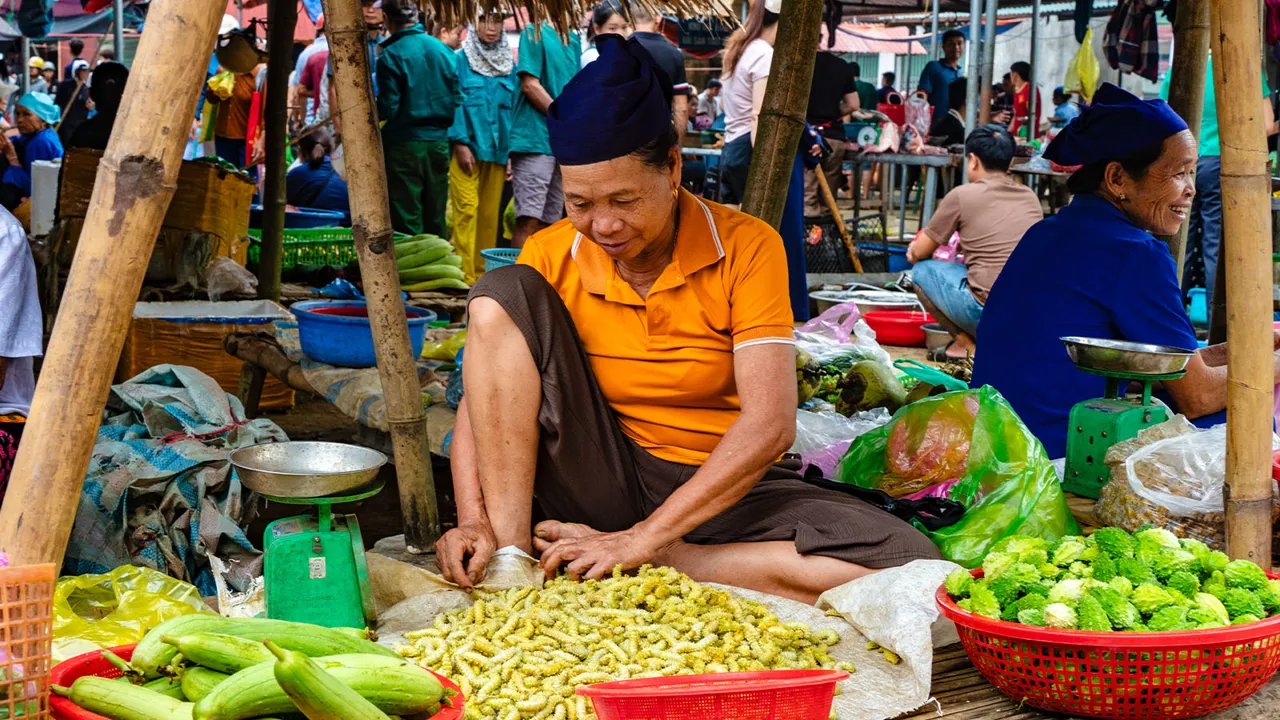
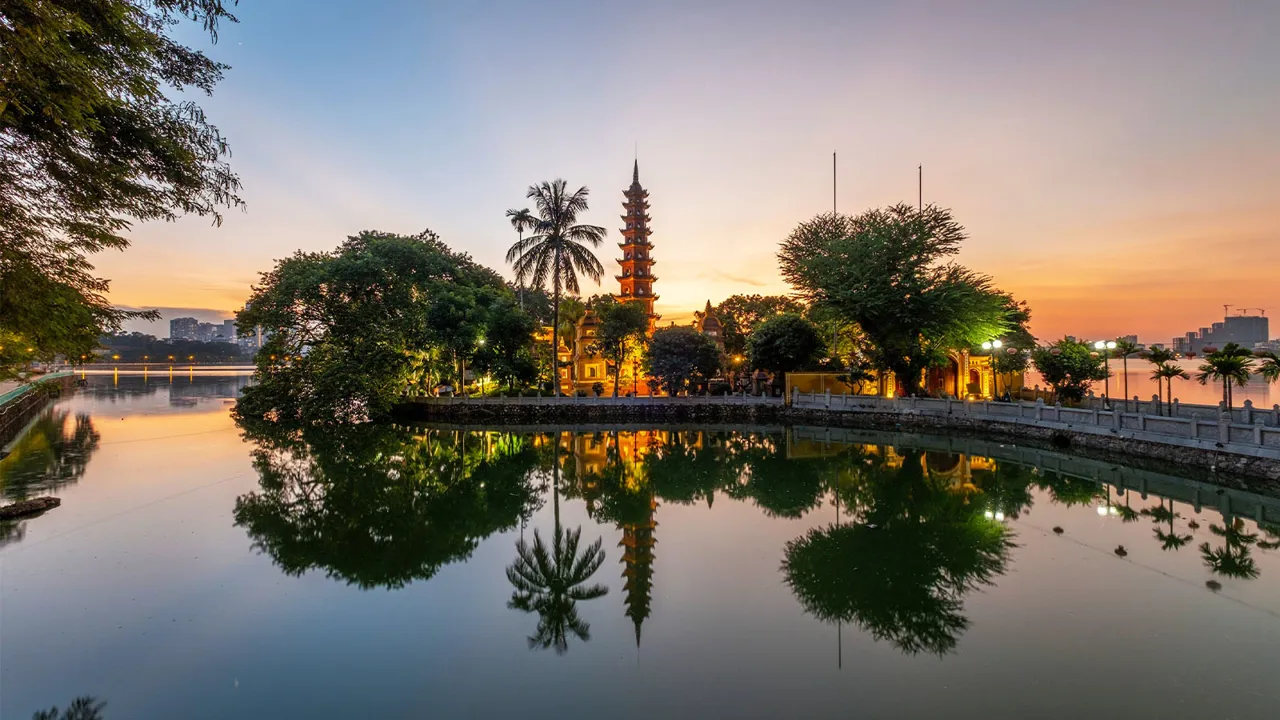


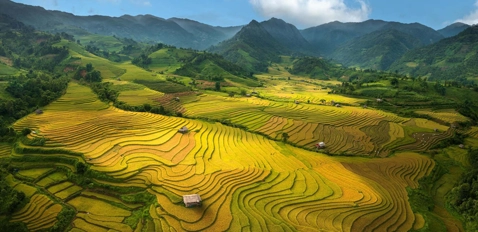







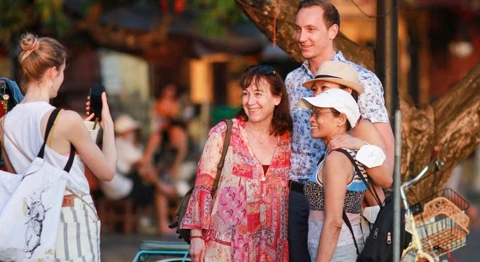
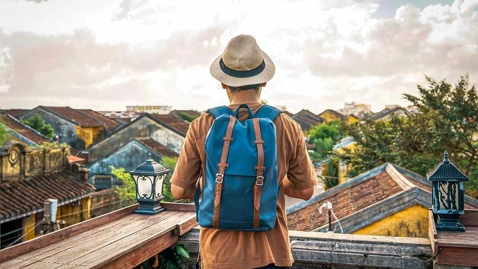
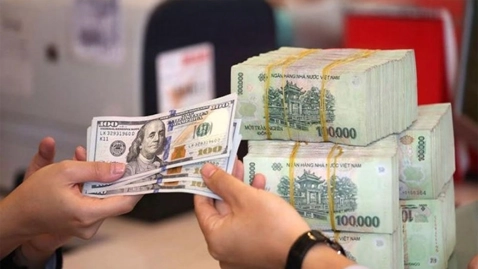
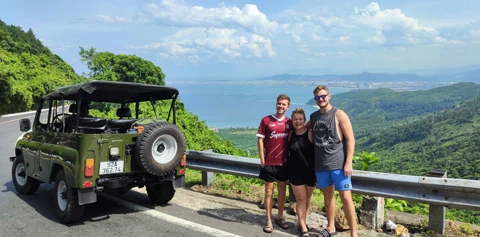




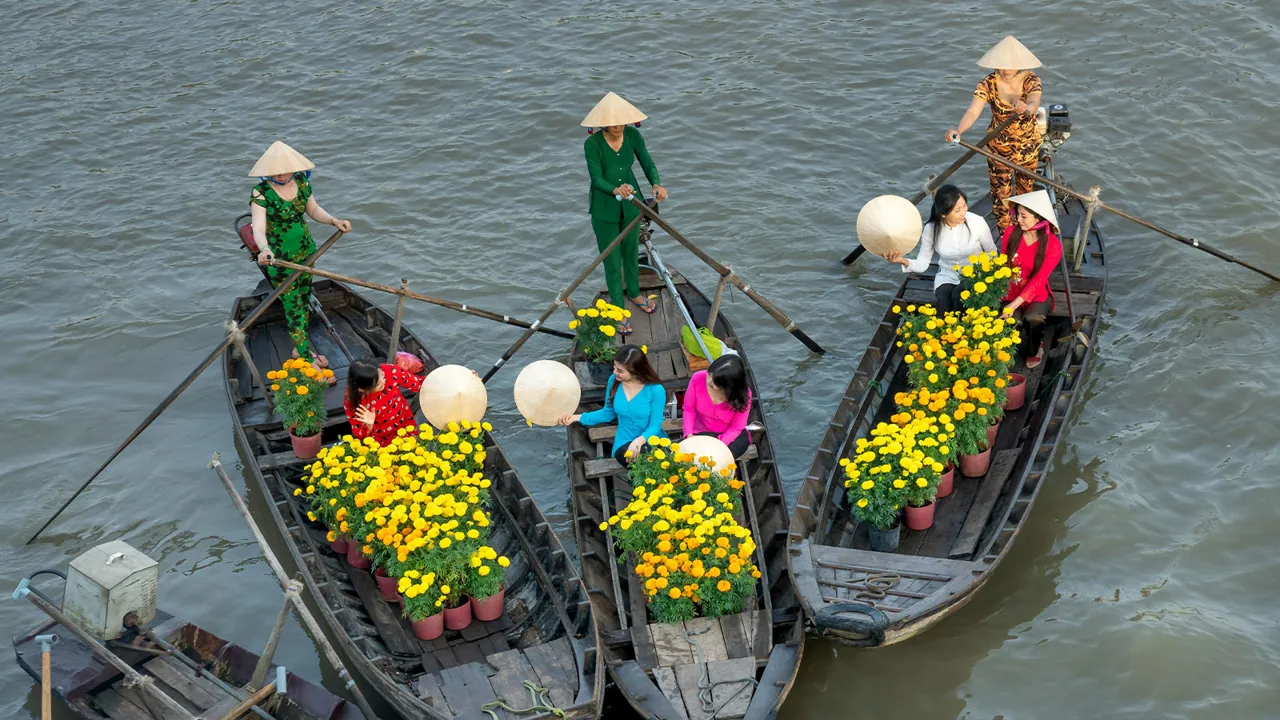




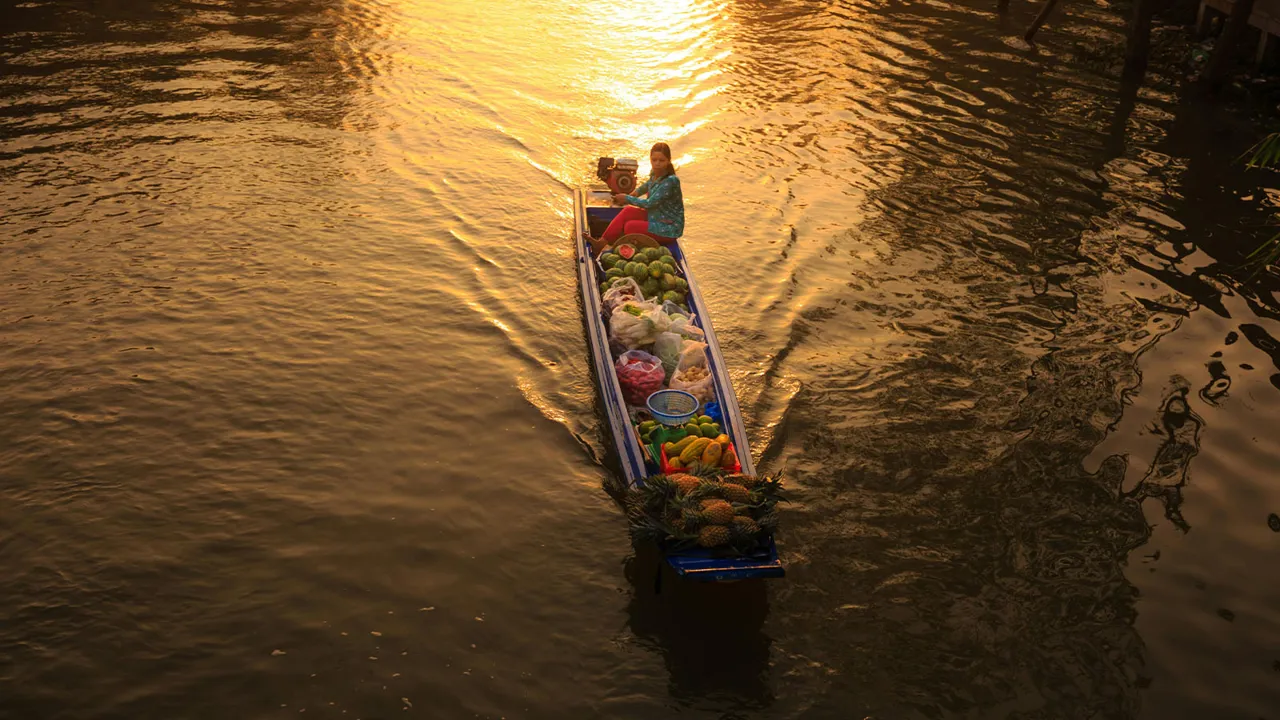
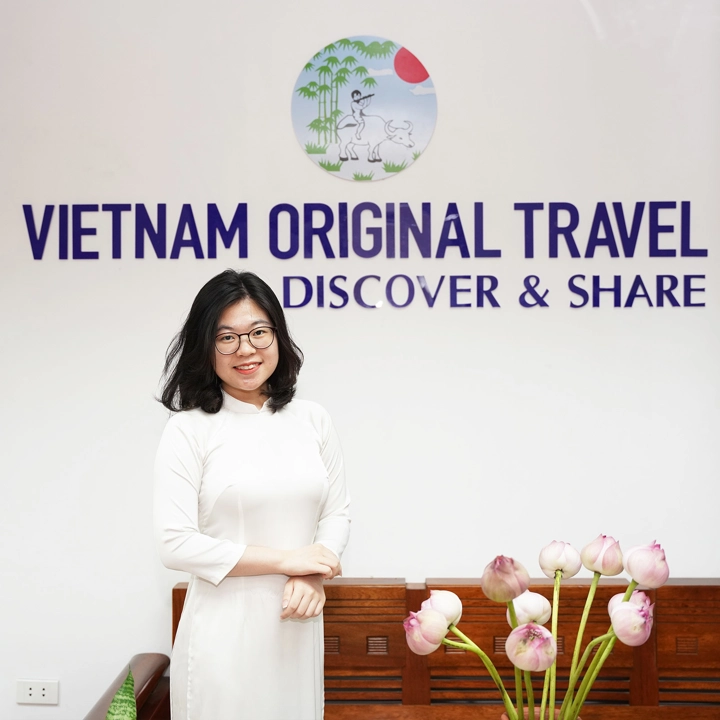

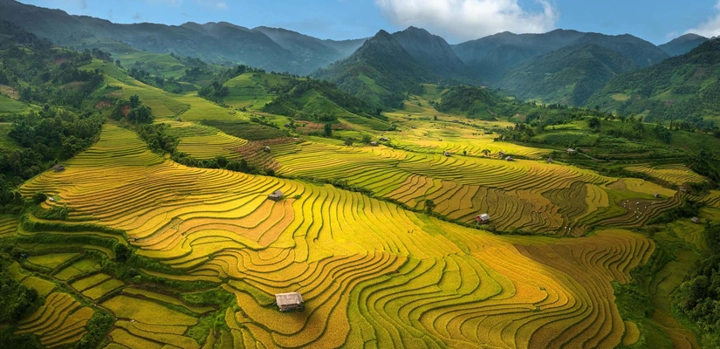







Comment